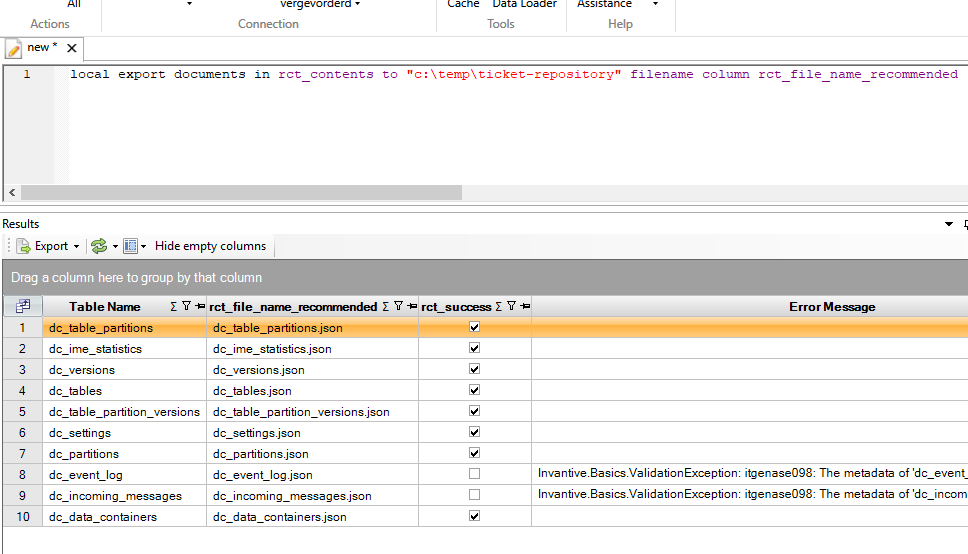For on-premise products without Data Replicator: follow these instructions instead. For Invantive Cloud and Invantive Bridge Online, follow these instructions.
The behaviour of Data Replicator is controlled by the contents of the repository. The repository is stored in a relational database. Typically the repository uses tables whose names starts with ‘dc_’, but this can be changed using a different environment-prefix-repository setting.
It may be necessary to provide Invantive Support with the contents of the repository to analyze incidents on Data Replicator.
Additionally, you may be asked to provide detailed logging during the period which the Data Replicator incident occurred.
This article describes how to provide this information.
Instructions
The call stack and other context can typically be found in the form System Messages on Invantive Cloud, also for on-premise products. Please visit Log on. Include the full URL to the system message in your communication.
The next step is to collect detailed logging of the incident following these steps:
- Set the environment variable
INVANTIVE_TRACE_ACTIVEto “true” as described in the manuals. - Set the environment variable
INVANTIVE_TRACE_TO_FILEto “true“. - Set the environment variable
INVANTIVE_TRACE_FOLDERto “c:\temp\ticket-trace” or another folder with at least a few gigabytes of free disk space.
After this:
- Close all Invantive programs to ensure the environment variable settings get active.
- Reproduce the incident using Invantive Data Hub or Invantive Query Tool.
- The folder
c:\\temp\\ticket-tracewill contain files with detailed logging. - Create a ZIP archive with all the files.
- Provide the ZIP archive to Invantive support.
Next step is to collect the contents of the repository following these steps:
- Log on to the Data Replicator environment using Invantive Query Tool.
- Log on will succeed even when the repository is corrupt or even tables are missing.
- Execute the following query as the first query:
select *
from dc_repository_contents@DataCache
local export documents in rct_contents to "c:\temp\" filename column rct_file_name_recommended
local load results clipboard dc_table_partitions from "c:\temp\dc_table_partitions" format json
- The database containing the repository will be opened, but the repository will neither be loaded, upgraded nor validated.
- The contents is shown in the Query Tool resembling to:
- The table with event log and incoming messages were missing in this sample.
- Execute the following statement to create files with the repository contents:
local export documents in rct_contents to "c:\temp\ticket-repository" filename column rct_file_name_recommended
- Create a ZIP archive with all the files from
c:\\temp\\ticket-repository. - Provide the ZIP archive to Invantive Support.
